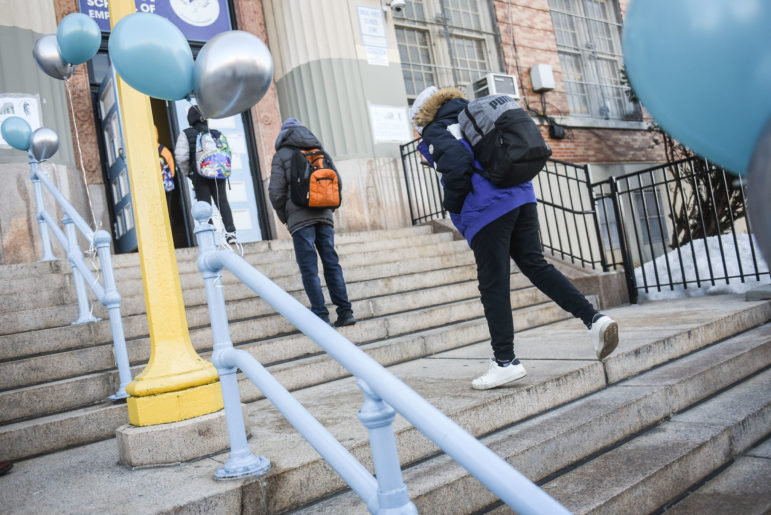Center Care Health Insurance, in the largely Dominican neighborhood of Inwood, is usually closed on Sundays. But for the past couple of months, Sunday has been its busiest day. That’s because it is also a location for voter registration in preparation for the upcoming presidential election. Not the one in November, though. The one in May.
“This May you are going to see Dominicans celebrating on the streets of New York,” says Miguel Melenciano. He’s the head of the Dominican Central Election Board, established two years ago to register Dominicans in New York to vote in the Dominican Republic’s upcoming presidential election.
Before this election, which will take place on May 16, the only way Dominicans could vote was to travel back to the Republic on election day–and many did. Ricardo Garden, a Dominican citizen who has lived in the U.S. for 20 years, says some of his friends would even charter planes to fly with other Dominicans to go back to vote and visit family. “Politics is it in the Dominican Republic,” says Garden. “People are sitting, playing dominoes, talking politics. They’re buying groceries, talking politics. They’re doing the laundry, talking politics.”
Now those politics can thrive here as well. Dominicans–who retain dual citizenship if they were born in the Republic–will be able to vote at one of several locations in the New York area without dropping $500 for a flight back home. Restaurants, salons, even taxi companies have provided space for voter registration tables.
To sign up, Dominicans are required to bring their “cédula”–a photo ID issued in the Dominican Republic. Of the estimated 410,000 Dominicans who live in the New York area, Melenciano says about 85 percent have a cédula, which can be updated at various voter registration locations throughout the city.
On election day, voters will be given a ballot printed with names and photos of the Dominican candidates. They will underline a photo, then the votes will be tallied and sent to the Dominican Republic by e-mail that evening.
The Dominican Republic isn’t the first country to establish remote voting–Colombia, Peru, Venezuela, Brazil and Argentina already use it. But Dominicans represent one of the city’s largest immigrant groups. Dominican candidates recognize the importance of winning the expatriate vote, and some have already visited the U.S. to campaign.
Like any fledgling program, however, this one has its glitches. Some insiders describe the process as disorganized and bureaucratic. Others say internal squabbles and accusations of corruption in the Republic’s ruling PRD party have inspired a wave of political apathy among Dominicans in the U.S. But Garden, at least, maintains faith in the potential of the absentee vote, especially for a country as small as the Dominican Republic, which has a total population of only 8.5 million. “We have the power to form a real voting bloc in this country,” he says. “It’s just a matter of mobilizing the people. And we will get there.”








